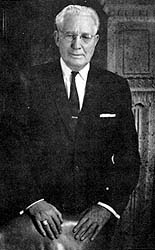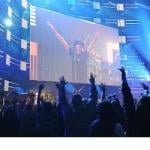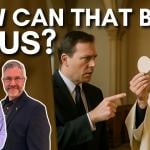
(1883-1975)
LDS.org
I love this quotation from President Hugh B. Brown, who was first counselor in the First Presidency of the Church of Jesus Christ of Latter-day Saints for my early formative years and for whom I had (and have) great admiration:
“I admire men and women who have developed the questioning spirit, who are unafraid of new ideas and stepping stones to progress. We should, of course, respect the opinions of others, but we should also be unafraid to dissent – if we are informed. Thoughts and expressions compete in the marketplace of thought, and in that competition truth emerges triumphant. Only error fears freedom of expression. This free exchange of ideas is not to be deplored as long as men and women remain humble and teachable. Neither fear of consequence nor any kind of coercion should ever be used to secure uniformity of thought in the church. People should express their problems and opinions and be unafraid to think without fear of ill consequences. We must preserve freedom of the mind in the church and resist all efforts to suppress it.”
From a speech at BYU, March 29, 1968
I’m aware that the quotation is dusted off from time to time in order to protest against an excommunication. But I believe that’s a misapplication of what he said. At least, if President Brown thought that the concept of apostasy ought to be retired, and that there should be no excommunications and no limit to what can be taught in the Church, I’m unaware of any statements from him to that effect. As first counselor in the First Presidency, he served for a number of years as a member of the very highest tribunal or court of appeals in Mormonism.
It’s certainly true, though, that humble seekers should be absolutely free to ask questions, to express reservations, to disagree. Those words “humble and teachable” are really important, though.
They don’t mean “angry and defiant,” or “rebellious and sneering.”
Big difference.












